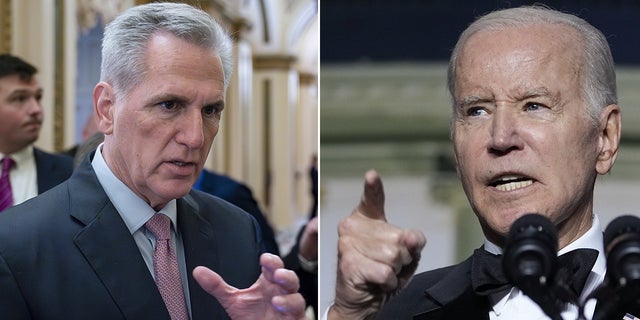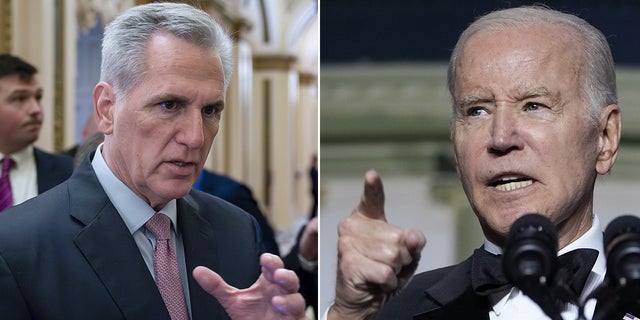
As negotiations between President Biden and Republicans over the nation’s debt limit remain up in the air, Democrat Sen. Chris Van Hollen suggested on “Fox News Sunday” that Congress should let the president take the lead on raising the debt ceiling and then negotiate the “important issues” later.
Van Hollen, who has represented Maryland since 2017, said Biden and Republicans have yet to come to the table for negotiations because the GOP has threatened the “detonation” of the economy with steep spending reductions in the sweeping package passed last week to raise the debt limit by $1.5 trillion.
“If Republicans don’t want to do what’s necessary to prevent the meltdown of the economy, let President Biden do that,” Van Hollen said. “And then let’s negotiate on important issues, priorities, how you best achieve deficit reduction.”
Van Hollen added that while under his suggestion Biden would be given the authority on raising the debt limit, it would still be subject to a veto or override.
HOUSE PASSES MCCARTHY’S DEBT CEILING BILL BY TWO VOTES, FOUR REPUBLICANS VOTE AGAINST
Under the guidance of House Speaker Kevin McCarthy, R-Calif., Republicans passed legislation on Thursday, an opening bid that is now awaiting the president’s response.
Democrats, however, oppose the harsh spending cuts that Republicans have proposed and have accused them of threatening default.

President Biden has said he won’t negotiate with McCarthy and Republicans over the debt limit. (AP Photo/J. Scott Applewhite / Carolyn Kaster, File)
Van Hollen said Biden “will sit down” with McCarthy on budget issues, but the president won’t negotiate with anyone who is “literally threatening to blow up the economy.”
REPUBLICANS HAVE THE UPPER HAND OVER DEMS IN DEBT CEILING NEGOTIATIONS, BUDGET EXPERT SAYS
“What the president is saying, he’s not going to negotiate with someone who’s actually threatening the economy, taking the entire economy hostage,” the senator said.
“He will sit down with Speaker McCarthy to talk about these issues in the framework of the budget and the appropriations process,” Van Hollen continued. “President Biden has put a plan on the table, quite a detailed budget, much more detailed than what Speaker McCarthy in the House just passed.”
Economic analysts warn that even the political threat of a federal default on the nation’s debt, now at $31 trillion, would send shockwaves through an already jittery economy.
With economic growth falling to a sluggish 1% annual rate last quarter, according to new data this week, signs point to the potential for a recession ahead.
The Associated Press contributed to this report.








